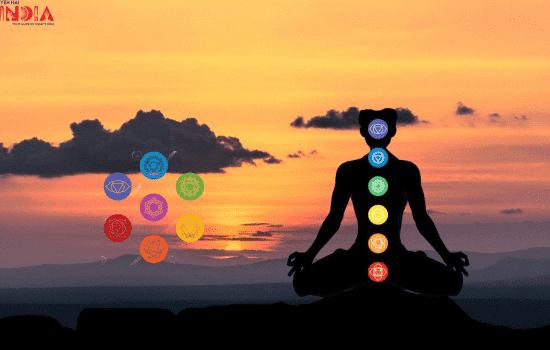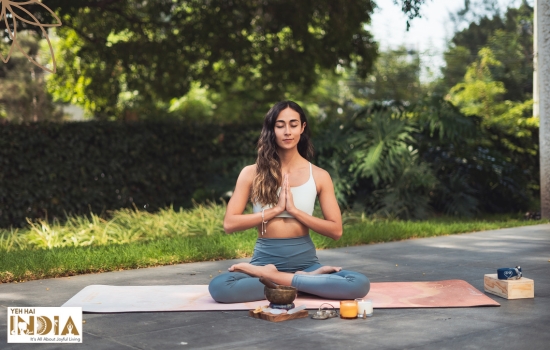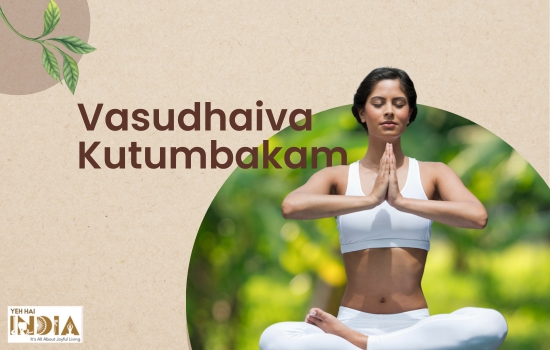Spirituality offers a worldview that transcends beyond what one experiences on a sensory or physical level.
Yoga, Meditation, and spiritual living have now become resonant themes worldwide.
Amid pandemics and the need for work-life balance, citizens of the world are now looking for ways to live and lead a healthy and sustainable life.
If you have attended your meditation classes or energy healing sessions, you’ve no doubt heard about the ‘Chakras’ and the flow of energy through your body.
Here is everything you need to know about the 7 Chakras, their meaning, and how you can harness them through effective yoga postures.
What are the 7 Chakras?
The human body has 7 zones throughout the body that transmit and facilitate the flow of energy.
These zones, referred to as chakras, are the main energy centers which carryout free flow of energy and ensure a synergy between body, mind and soul.
‘Chakra’ in Sanskrit literally translates to ‘Wheel’.
These 7 wheels enable the essential order of human functions and keeping them ‘open’ means to promote physical, mental, and social well-being.
Each of these chakras have distinctive characteristics and elements from root to the crown and are identified through color coding.
Recommended Story – Yoga- Breathing exercises for anxiety
Why are these Chakras important?
Experts in Yoga and therapeutic medicine suggest that each chakra manifests energy activities that have different outcomes for human body.
Depletion or high increase in the energetic activity means it will affect physical and mental well-being of humans.
For example, the first chakra is associated with security, survival and the foundation of life.
Under activity or overactive force of this chakra can show up signs of depression, vulnerability, and insecurity effecting facets of mental and physical well-being.
Hence, unblocking these chakras and harnessing their abilities and potential is vital for overall well-being of humankind.
How you can unleash the potential of Chakras?
The chakras create a synergy for the transmission of energies and the most effective way to harness these is through meditation, breathing exercises, and Yoga.
Each of these exercises creates flexibility to harness the synergies between the chakras and promote overall sustainable well-being.
The 7 Chakras
1. Muladhara: The Root Chakra
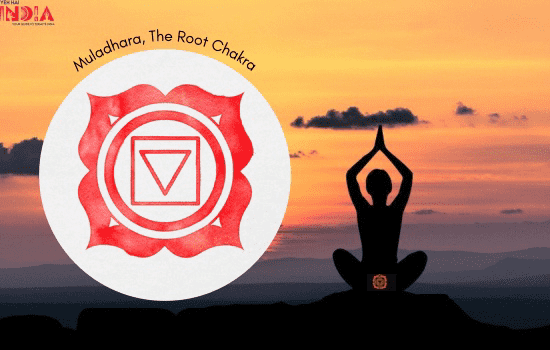
The Muladhara or the Root Chakra represents the foundation of human life and its basic facets such as security and survival.
This zone sits at the base of the spine ensures that life is grounded.
When the root chakra is open, we tend to withstand challenges and deal with insecurities to stand on our own feet.
When its blocked we feel vulnerable, threatened, and face instabilities.
Location: Base of spine, tailbone zone
Color – Red
Element – Earth
Suggestive Yoga Postures – Balancing postures like Mountain Pose, Tree Pose, or Warrior pose.
2. Swadhisthana: The Sacral Chakra
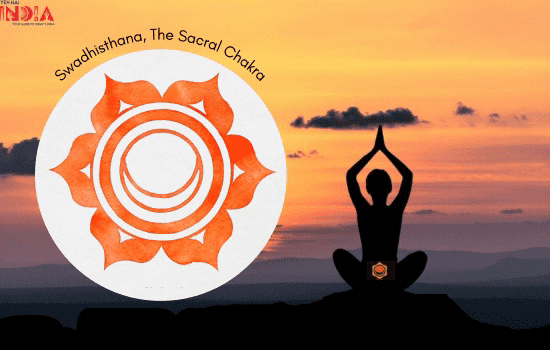
This chakra helps inform how we can relate to our emotions and the emotions of others.
It is responsible and governs human feelings, creativity, desire, sensuality and sexual energy.
A blocked sacral chakra means lack of ability to control emotions, desirability and feelings.
Location: Lower abdomen, about 2 inches below the naval
Color: Orange
Element: Water
Suggestive Postures: Bound Angle Posture, Pigeon Pose, Bridge Pose
3. Manipura: Solar Plexus Chakra
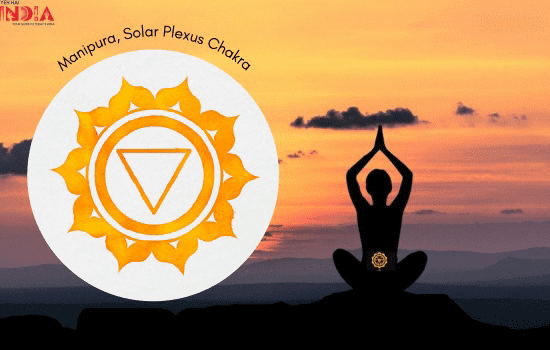
The Solar Plexus, also called as the celiac plexus is part of the sympathetic nervous system.
It is part of the complex system of radiating nerves and ganglia and plays an important role in the functioning of stomach, kidneys, liver and adrenal glands.
Manipura is very essential to the mainstream functioning of digestion and nutrient circulation.
Its blockage means overwhelming amounts of anxiety, doubt, shame and inability of expression.
Location: Upper abdomen and stomach area
Color: Yellow
Element: Fire
Suggestive Posture: Boat or Triangle posture.
Recommended Story – Top 10 Yoga Apps for Practising Yoga at home
4. Anahata: Heart Chakra
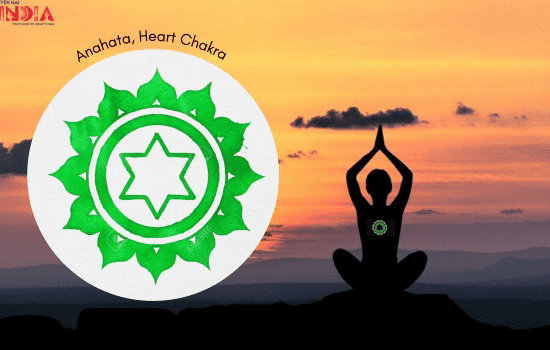
The Anahata or the Heart Chakra is the bridge between the lower and upper chakras.
This zone influences one’s ability to be balanced, calm, and composed.
Anahata literally translates to “unhurt, unbroken, and unbeaten”.
Often described as a tiny flame inside the heart, the Anahata controls the ability to endure all kind of hardships and realities of one’s life.
Location: Center of the chest
Color: Green
Element: Air
Suggestive Postures: Camel postures, Cow Face pose, Humble Warrior
5. Vishuddha: Throat Chakra
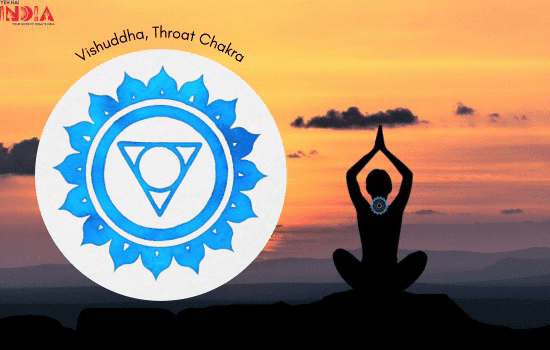
The Vishuddha or the throat chakra is the human center for communication.
It gives voice to the Anahata and empowers ability to communicate personal power. It gives ability to express ourselves truly and clearly.
Blockage of throat chakra means trouble to communicate with self and to the rest of the world.
Location: Throat
Color: Light Blue
Element: Sound
Suggestive Yoga Postures: Plow and Fish postures
6. Ajna: Third-Eye Chakra
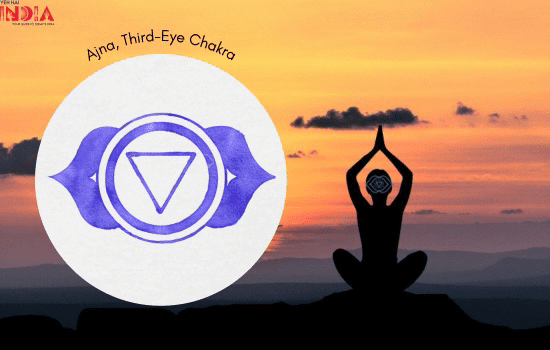
The Ajna or the Third Eye Chakra, is also called as the Agya.
In Hindu Vedic systems, the Ajna is a means to communion with the divine.
It signifies subconscious mind and direct link to the Brahmin (universe or the ultimate reality).
The third eye is said to connect people to intuition, give them ability to communicate and connect the realities of past, present and the future.
The Ajna is the eye of the soul and is the centre of human cognition.
Location: Forehead, between the eyes
Color: Dark Blue/ Purple
Element: Light
Suggestive Posture: Forward Fold, Child’s pose, Folded eagle, Meditation, and Pranayama
7. Sahasrara: Crown Chakra
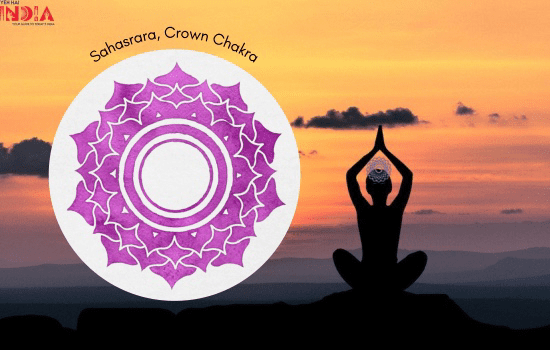
Sahasrara in Sanskrit literally translates to ‘thousand or the infinite’.
It is also associated with the ‘thousand petalled lotus’ and “Brahmarandhra” or the door to the god depicted in Hindu Vedic Sciences.
The Crown Chakra is the Centre of Million Rays and is associated with the Sun.
Unleashing crown chakra means unleashing highest forms of intelligence that humans can be capable of.
Location: The top of the head
Color: White or Violet
Element: The Sun
Suggestive Postures: Headstand or Shirshasana
Also Read – Yoga & Indian Culture


